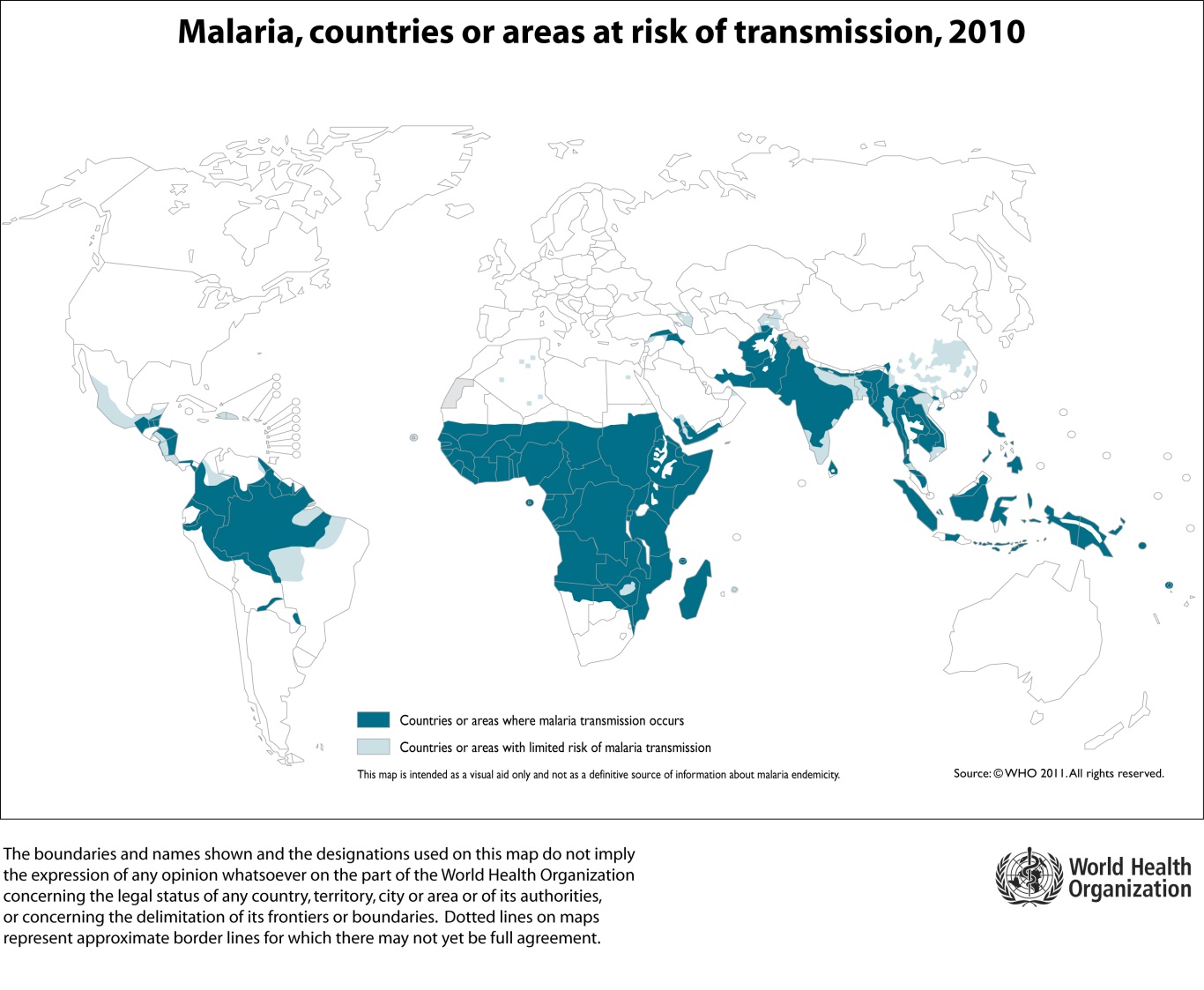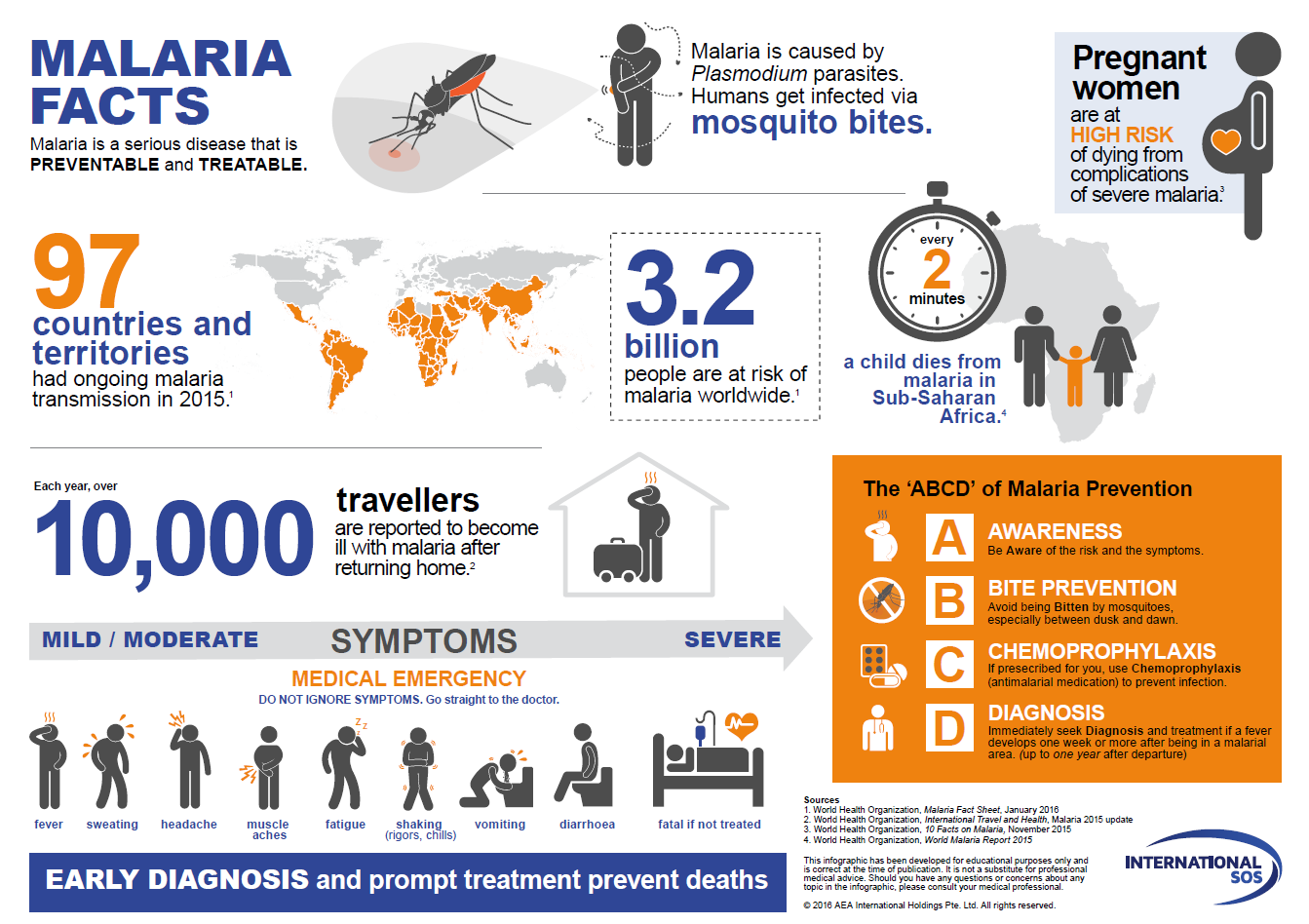
Malaria: A hidden threat
Malaria remains one of the world’s major infectious diseases. Although significant progress has been achieved, according to the World Health Organization, in 2013 alone, there were an estimated 198 million malaria cases and 584,000 malaria-related deaths.

Caused by parasites in the genus Plasmodium, malaria is transmitted via the bites of infected mosquitoes. There are five Plasmodium species responsible for human malaria. In the human body, the parasites multiply in the liver, and then infect red blood cells. Flu-like symptoms usually appear between 10-15 days after an infective mosquito bite. If not treated, malaria can quickly become life threatening by disrupting the blood supply to vital organs.
Malaria – a Duty of Care Issue
Malaria is one of the leading causes of death among expatriates and business travellers every year, posing a significant risk to both employees exposed to infection in malaria-endemic countries and organisations responsible for looking after those employees.
Malaria – the Need for Management
If not controlled and managed appropriately, the impact of the disease on employee health, workforce productivity, business continuity, company reputation and healthcare costs can be significant. Yet the risks of the disease are often misunderstood and underestimated. An outbreak can potentially render a high percentage of a workforce unfit within a few weeks. In West Africa for example, some mining operations have recorded up to 25% of the workforce unfit for work in any given month, entirely due to malaria.
Some travellers mistakenly think they are “immune” just because they have had only mild infection or no cases in the past. Expatriates, in particular, often dismiss the threat simply because they have lived in a malaria endemic area for a period of years. Solid evidence has shown that only people who grow up in a malarial area and have suffered multiple malaria infections become partially immune to the infection. Everyone else is at risk of severe malaria, including those who grew up in a malarial area but who have been away for a year or two. Additionally, even when partial immunity is acquired, it only relates to the strain(s) of malaria to which the person was exposed in childhood – not necessarily providing protection to other kinds of malaria.
The need to educate employees of these risks remains paramount in controlling this disease, as does managing the disease from an organisational standpoint.
Malaria – Site Control Programmes
Whether you are considering starting up operations in a particular location or are actively deploying employees to areas of potential disease risk, accurately assessing your malaria risk is critical.
We recommend assessing:
- Local endemic malaria risk, based on current evidence-based surveys and research
- The quality of malaria control measures currently in place
- The ability of local health facilities to treat malaria cases
- The risks associated with mosquito larval habitats, accommodation structures, human behavior and attitudes, levels of knowledge, and personal protection measures available to your workforce


 Seite drucken
Seite drucken